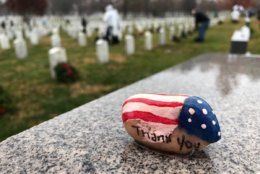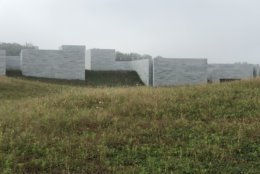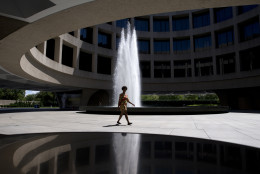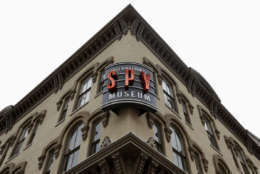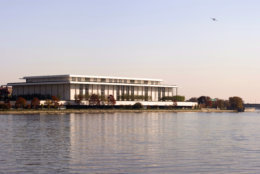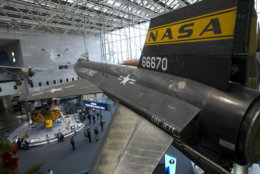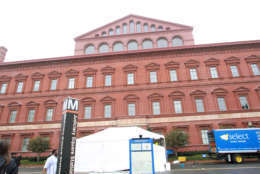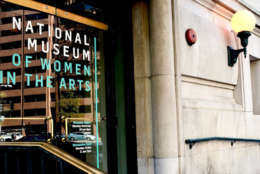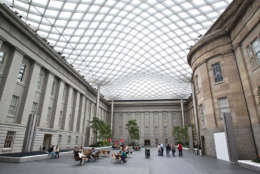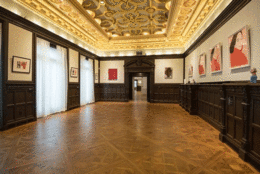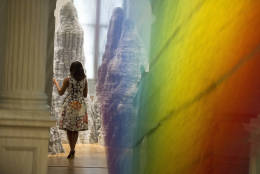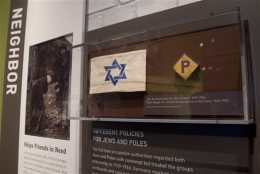Washington, DC isn’t just the capital of the United States — it’s also arguably the finest place in the country for museum lovers.
The National Mall, the stretch of space in front of the White House, has been nicknamed “America’s front yard,” with historian Caroline Cunningham estimating that a whopping 50 percent of Americans will set foot there at least once.
The mall is home to several of the country’s most famous sites, including the Lincoln and Washington Memorials, but it’s also the home base for the Smithsonian, a series of affiliated museums that cover everything from space to pop culture.
These government-run museums are free to visit, and the sheer scope and volume of what they cover could take weeks to explore. But even if you manage to explore all of them, there’s plenty more to see and do in culture-rich DC to keep you from ever growing bored.
Here are the museums and sites you should put on your “yes” list, in alphabetical order.
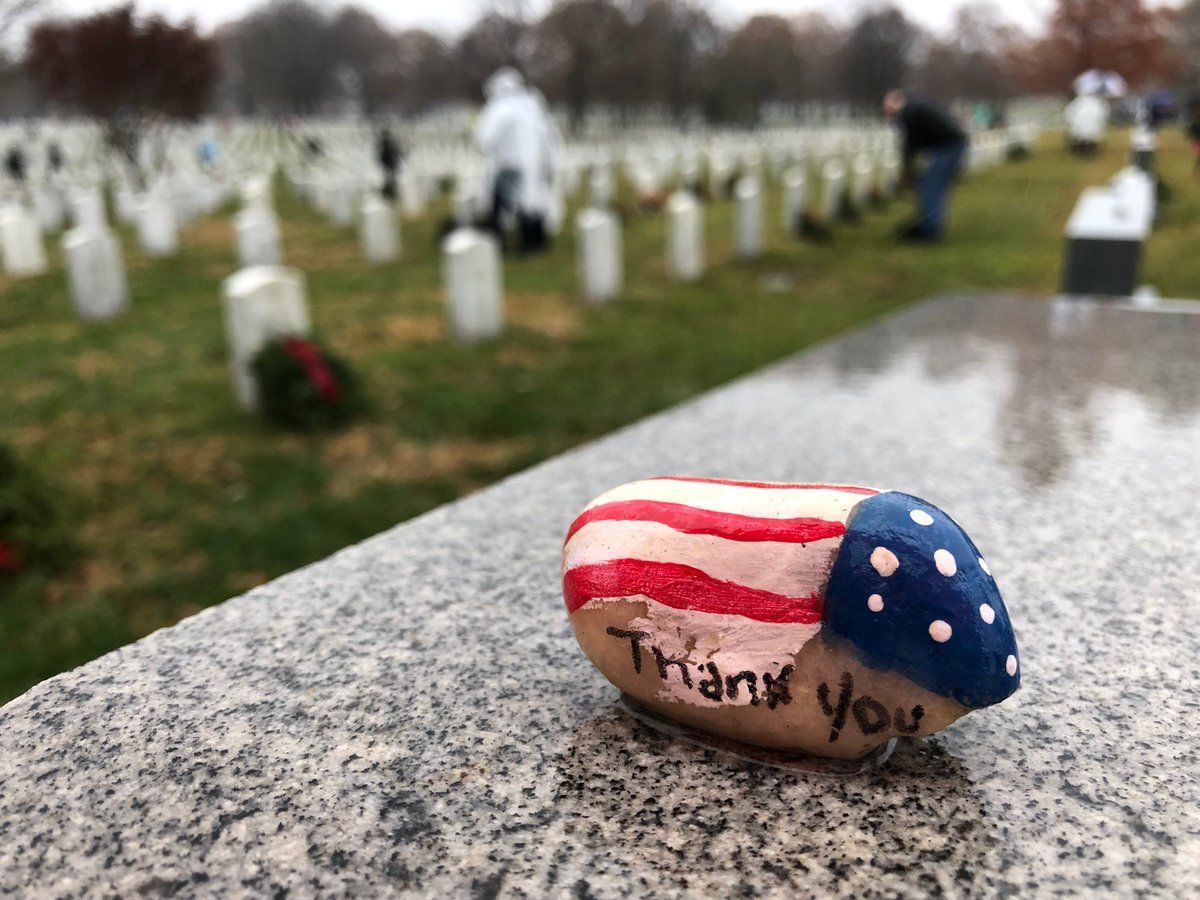
Arlington National Cemetery
Okay, it’s not a museum. And it’s not in Washington, D.C. proper (it’s in Virginia, just outside of The District), although it is on a Metro line. Still, Arlington National Cemetery is worth visiting not only for its sobering beauty but for its historical significance. Decorated military veterans and others who have served the country are buried here, with famous graves including those of William Howard Taft (the only person to have served as both President of the United States and Chief Justice of the Supreme Court), civil rights leader Medgar Evers and General George Patton. Arlington National Cemetery, 1 Memorial Ave. Arlington, Virginia USA 22211 (Photo: WTOP/Kristi King)Folger Shakespeare Library
Nope, the world’s largest collection of Shakespeare manuscripts isn’t in Stratford-upon-Avon … or in England at all. They’re here at the Folger Shakespeare Library, around the corner from Congress. The library was founded by philanthropist couple Henry Clay Folger and Emily Jordan Folger — whose money came from the Folger’s Coffee empire — during the Great Depression. Many of the actual Shakespeare folios and other rare books can only be viewed by academics or scholars who get permission in advance, but the Library has regular exhibits not just featuring Shakespeare but also showcasing other prominent American politicians, historians and writers who were fans of the Bard or interacted with his work. There are also readings, performances and other events held at the Library. The Folios periodically go on tour around the country, just in case you can’t make it to D.C. Folger Shakespeare Library, 201 E Capitol St SE, Washington, D.C., USA 20003 (Photo: AP)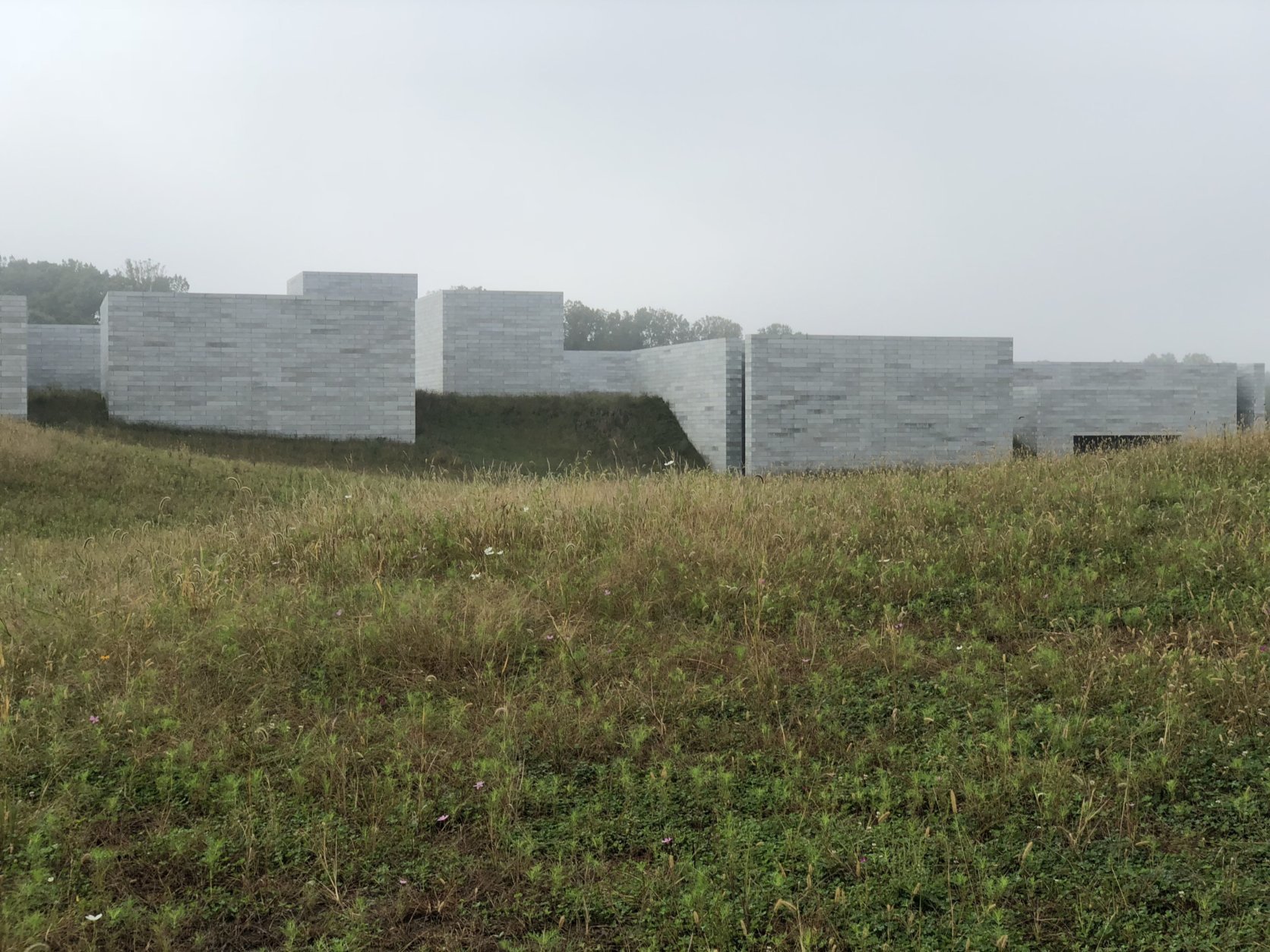
Glenstone
Calling Glenstone a museum feels like a disservice. Located in the Maryland suburbs outside of D.C., Glenstone, which opened in fall 2018, is an expansive collection of indoor and outdoor art exhibits, including everything from the forms of art you’re expecting in a museum (paintings, sculptures) to sound installations and interactive pieces as well as extensive grounds that really let you get into nature. Nearly every boldface name you can think of in the contemporary art world is represented here: Andy Goldsworthy, Jeff Koons, Ellsworth Kelly and more. The wealthy philanthropist couple who owns and funds the museum, Mitchell and Emily Wei Rales, are practitioners of the “slow art” movement — basically, they believe in spending lots of time exploring a museum and its grounds instead of rushing through trying to do everything. Simply put, you don’t come to Glenstone to do a drive-by and snap a couple of selfies before rushing along to the next destination on your list. Instead, you should take time to sit, reflect and interact with the art at Glenstone. The daily cap on visitors and the lack of Wi-Fi will help with this. Glenstone, 12100 Glen Rd, Potomac, MD, USA 20854 (Photo: WTOP/Rachel Nania)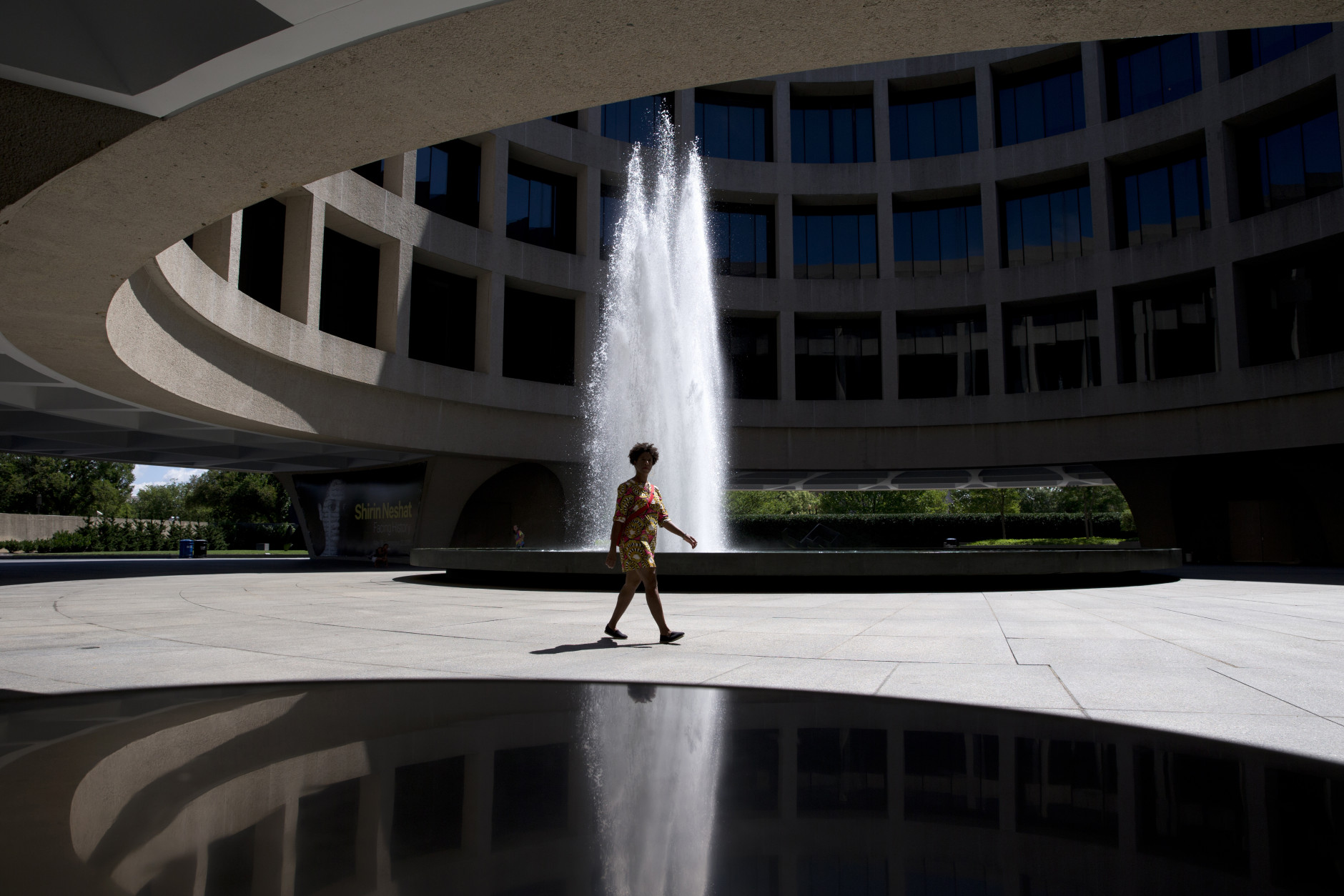
Hirshhorn Museum and Sculpture Garden
The Smithsonian Institution dedicated to 20th and 21st century art, the Hirshhorn, is immediately recognizable thanks to its striking cylindrical shape. As one of the most-visited art museums in the country — open every day of the year except for Christmas — the Hirshhorn commits to regular public programming and big exhibitions of major artists like dot-obsessive Yayoi Kusama to keep interest going for regular visitors as well as newcomers. Keep an eye out for work by Rene Magritte, Dan Flavin and Barbara Kruger, and make sure there’s time for a stroll through the sculpture garden on a sunny day. Hirshhorn Museum and Sculpture Garden, Independence Ave SW & 7th St SW, Washington, D.C. 20560, USA (Photo: AP)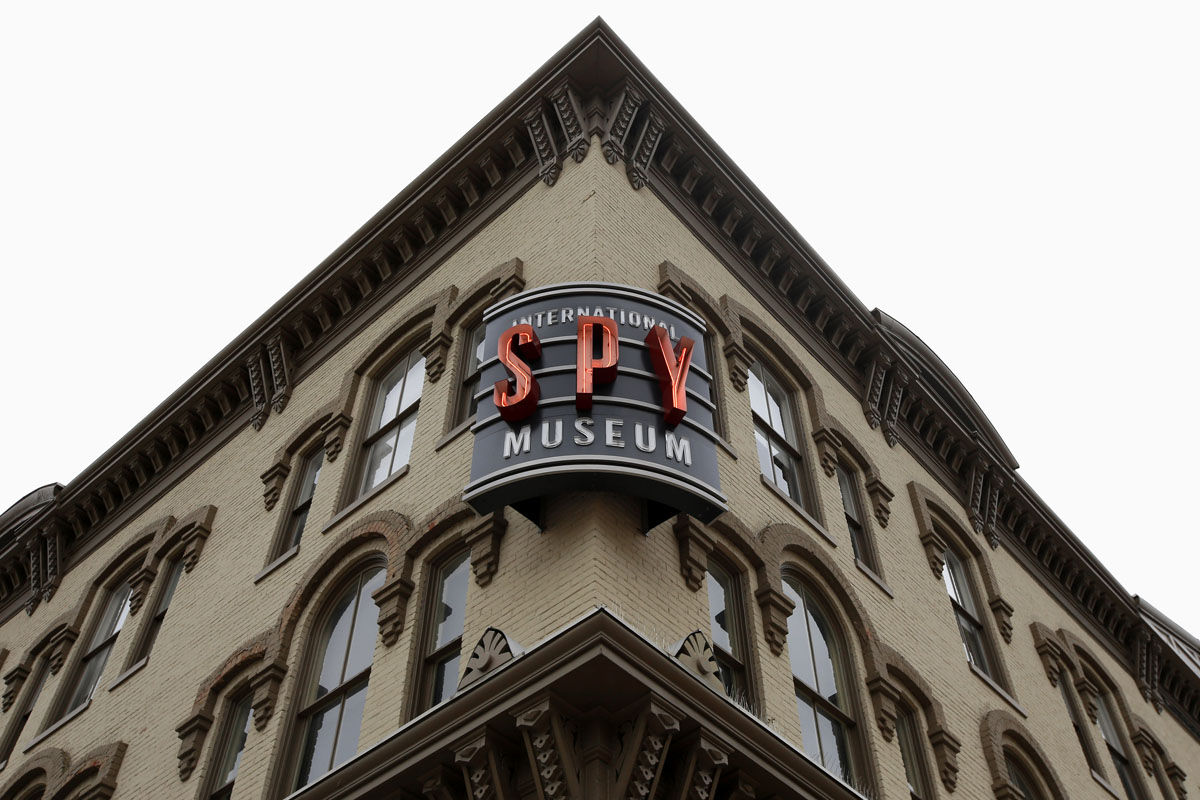
International Spy Museum
If you’ve ever watched a Bond movie and thought you’d make a good superspy, you can put your abilities to the test here at the International Spy Museum. Visitors begin their visit by being assigned a fake identity, where they’re challenged to memorize as much of their “cover story” as possible before being quizzed on it. Beyond that, guests can check out exhibits showcasing cool spy gear over the years — think guns disguised as lipsticks and hidden cameras concealed in pens — and test your abilities on a replica Enigma code-breaking machine. One note: The Spy Museum is moving to a new home in L’Enfant Plaza in May 2019, so keep an eye on the website for trip-planning purposes. International Spy Museum, 700 L’Enfant Plaza SW, Washington, D.C., USA 20024 (Photo: AP/Jacquelyn Martin)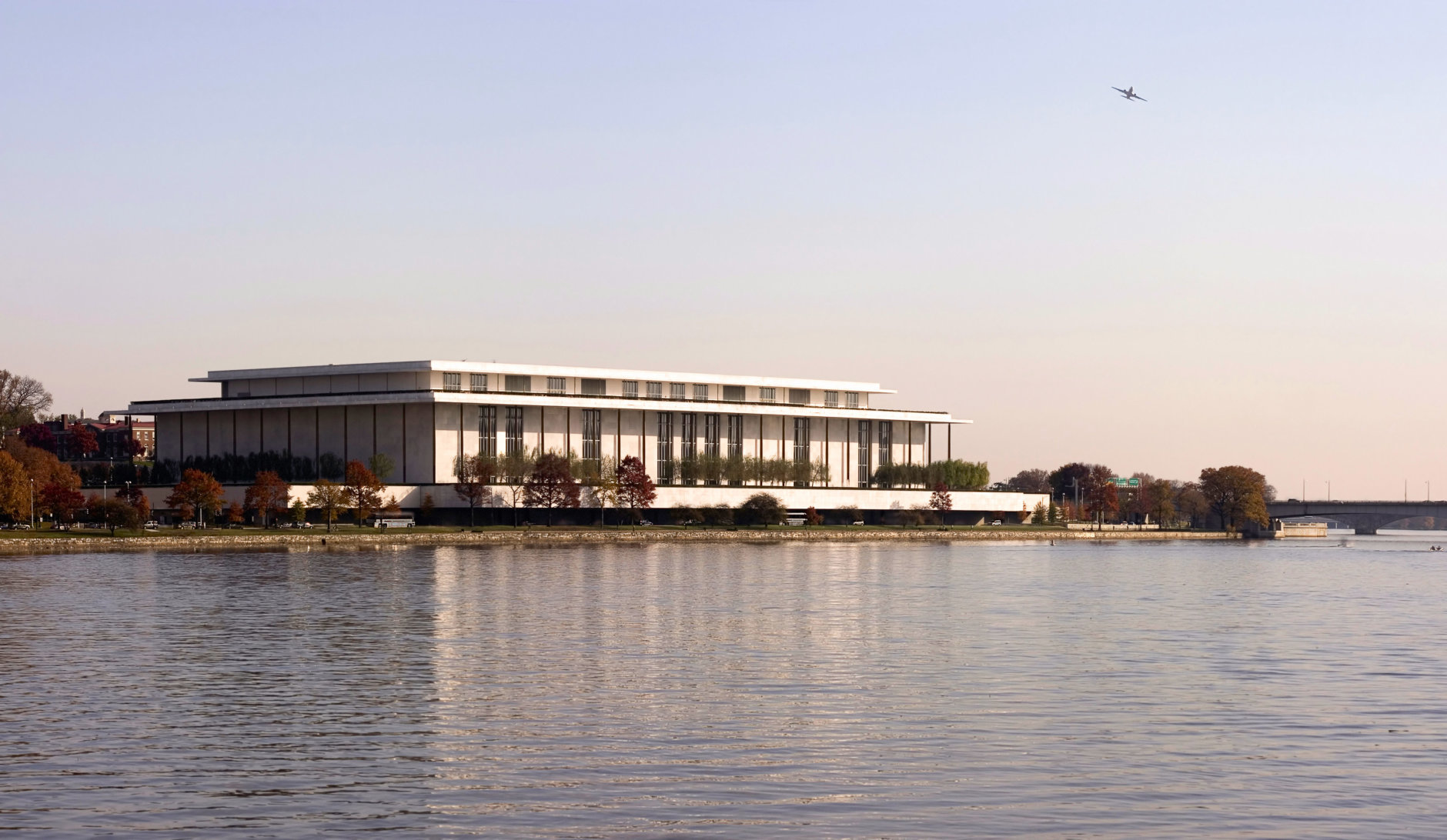
Kennedy Center for the Arts
The Kennedy Center’s stage will look very familiar to anyone who has ever watched one of the TV specials where A-list stars like Bruce Springsteen and Cher are honored by their peers during the aptly named Kennedy Center Honors ceremonies. However, the venue is buzzing year-round with activity, as it is home to the National Symphony and National Orchestra as well as other performances and concerts, some of which are free to attend. Year-round, there are guided tours of the center with an emphasis on the legacy of President John F. Kennedy, after whom the facility is named. If you’re hunting for lunch nearby, simply head upstairs to the rooftop cafe, where the bonus is views of the Potomac. Kennedy Center for the Arts, 2700 F St NW, Washington, D.C., USA 20566 (Photo: Getty Images/iStockphoto/ccahill)Library of Congress
Yes, another library. But this isn’t just any library — the Library of Congress is the oldest federal institution in the United States, and both history buffs and architecture lovers will find much here to enjoy. The principal gathering space is the Thomas Jefferson Building — it was named in the former president’s honor when his entire 6,000+ book library was acquired in 1815. The Library’s crown jewel is an original Gutenberg Bible. Displayed in a glass case, the bible’s pages are changed daily by the Library’s curators. Beyond that, the Library’s treasures include papers and documents from many U.S. presidents, the U.S.’ biggest law library and books in languages from Russian to ancient Hebrew. Don’t spend all your time with your nose in a book, though — the Beaux-Arts style gilded interiors make for a perfect Instagram post, with ornate columns, a ceiling fresco honoring countries who donated books to the Library, gilded wall details and more. Library of Congress, 101 Independence Ave SE, Washington, D.C., USA 20540 (Photo: AP/Susan Walsh)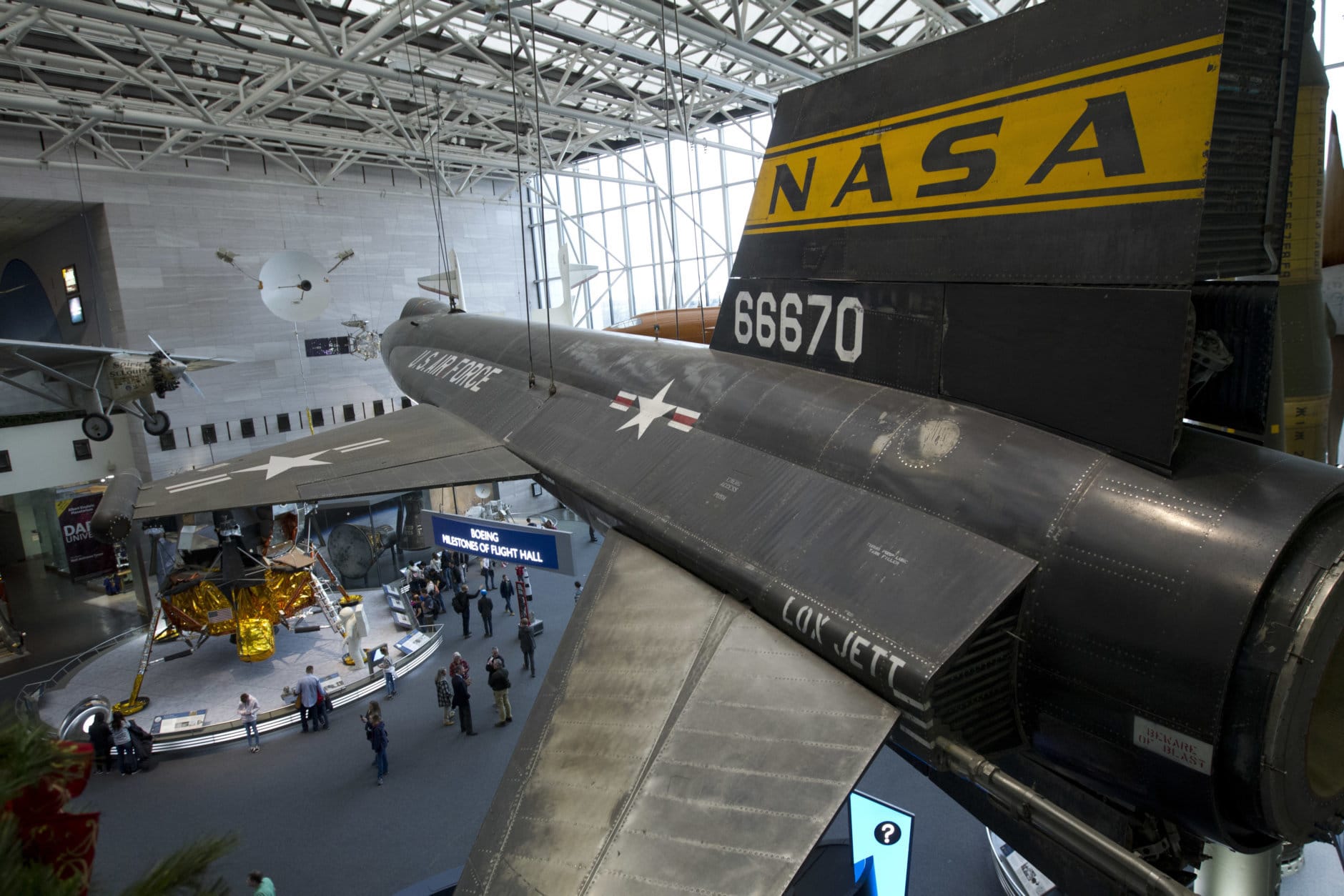
National Air and Space Museum
Did you grow up dreaming of being an astronaut? The magic and excitement of space travel is on full display at the National Air and Space Museum, which occupies an impressive chunk of National Mall real estate. As the name indicates, the focus here is on air and space travel and exploration, and many pieces of the museum’s memorabilia come from famous astronauts, such as the jacket that Sally Ride wore on her historic spaceflight. However, the museum is also playful with its interpretation of what air and space mean; previous exhibits have also featured photos from the earth taken from outer space, art created by former pilots and historical looks at the lives of the first black astronauts. Due to the massive size of some of the museum’s acquisitions, like planes and spacecraft, the museum got a much-needed extension space at Washington’s Dulles Airport. This extension, the Steven F. Udvar-Hazy Center, is the perfect place to visit before your flight back home. National Air & Space Museum, Independence Ave at 6th St, SW, Washington, D.C., USA 20560 (Photo: AP/Jose Luis Magana)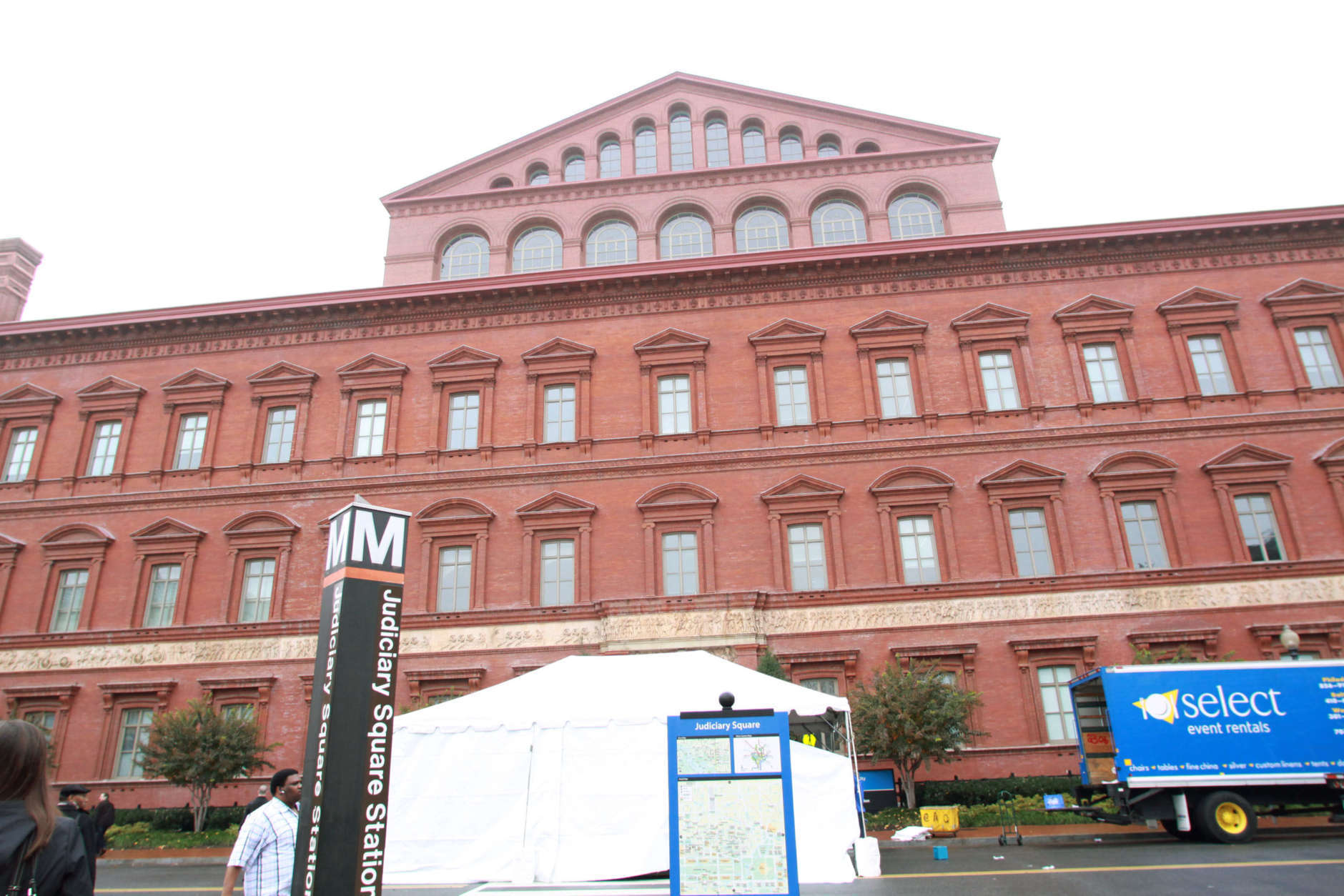
National Building Museum
Washington is a great city for lovers of architecture, with so many well-known styles on display. Cap off your sightseeing with a visit to the National Building Museum in the East End near Chinatown. Dedicated to architecture, urban planning and design, the museum is a big hit with kids thanks to the many interactive exhibits. Adults also love the space’s special events. To wit: A giant “beach” made of recyclable plastic took over the lobby in 2015 and broke attendance records. In 2018, the “Fun House” installation by tongue-in-cheek group Snarkitechture delighted visitors. No matter when you visit, odds are good you’ll get to check out some fascinating objects from the museum’s deep archives, which include everything from different kinds of building materials to blueprints by famous architects like Frank Lloyd Wright. National Building Museum, 401 F St NW, Washington, D.C., USA 20001 (Photo: ASSOCIATED PRESS/Lauren Victoria Burke)National Museum of African-American History and Culture
The newest addition to the Smithsonian collection is also one of the most impressive. Unveiled to much fanfare in 2016, this museum is a thoughtfully curated collection of objects that speak to the black experience in the United States. The building, designed by Ghanaian-British architect Sir David Adjaye, sets the tone for the museum’s epic scope, which makes the big details — namely a cascading fountain in the center of the building — feel as intimate as the small ones. You could easily spend hours taking in the many pieces comprising the collection, which include belongings of notable African-Americans from Maya Angelou to Jackie Robinson. And the restaurant is a piece of art as well: Chef Jerome Grant, who has Jamaican and Filipino roots, has made Sweet Home Cafe an exploration of how history informs our food. National Museum of African-American History and Culture, 1400 Constitution Ave NW, Washington, D.C., USA 20560 (Photo: AP)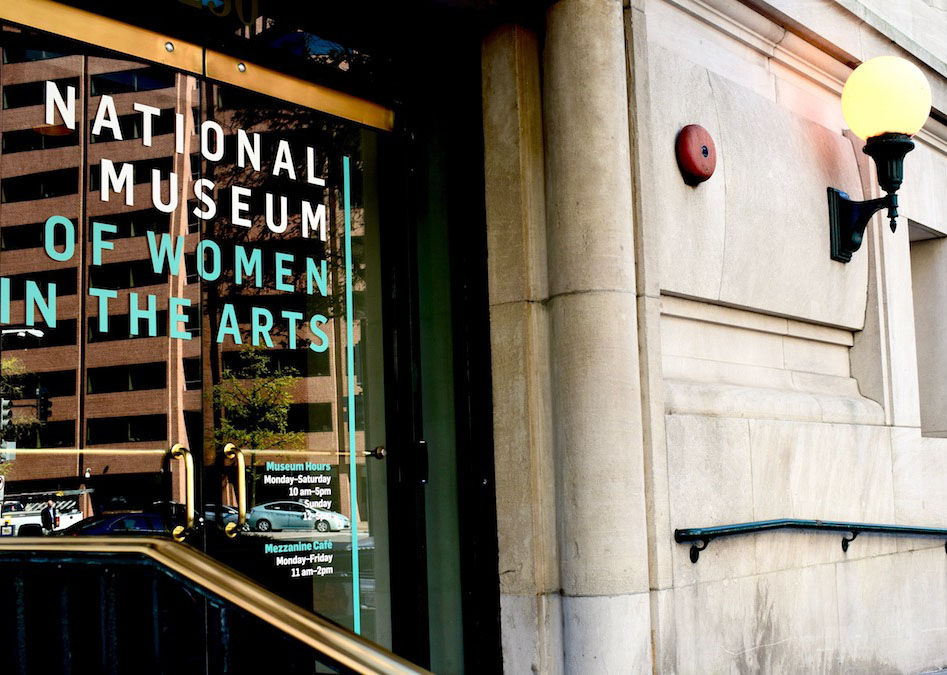
National Museum of Women in the Arts
How many museums solely dedicated to art from women artists are there in the world? One. For that reason alone, the National Museum of Women in the Arts is worthy of a visit. While there is plenty of art — Frida Kahlo, Judy Chicago, Rosa Bonheur, Camille Claudel and Berenice Abbott are among the many represented — the museum also takes its role as a cultural arbiter seriously. The museum publishes a series of art books, supports female-fronted exhibits around the country and uses its social media platform to promote women artists. National Museum of Women in the Arts, 1250 New York Ave NW, Washington, D.C., USA 20005 (Photo: WTOP/Teta Alim)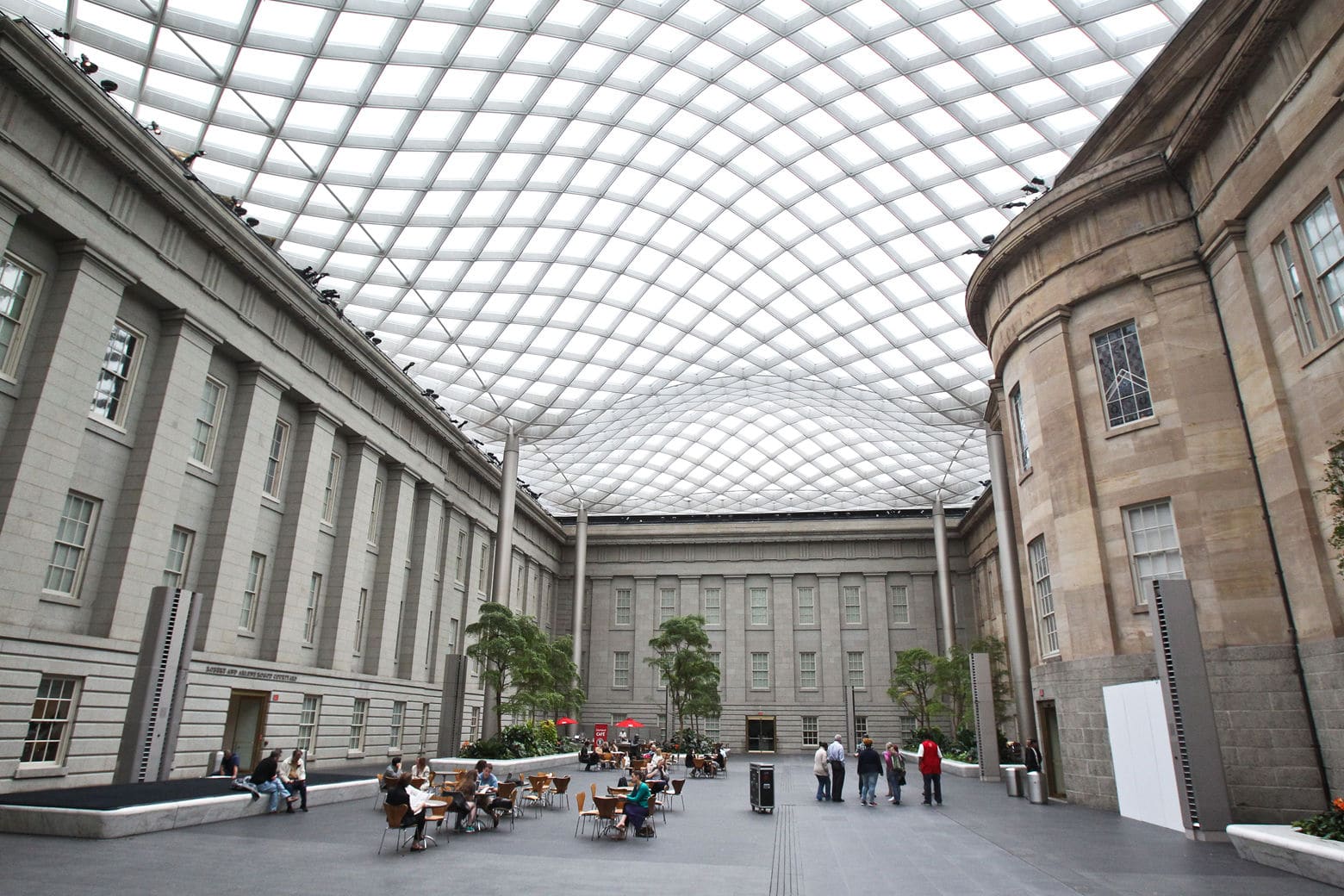
National Portrait Gallery
Walt Whitman’s iconic line “I hear America singing” comes to mind at the National Portrait Gallery, which chronicles the United States through the identities of some of its most famous citizens. That includes every U.S. president, including a colorful portrait of former President Barack Obama, which was the first-ever official U.S. presidential portrait to be painted by a black artist (Kehinde Wiley). However, don’t just look for the most familiar faces. Many of the museum’s most affecting pieces are the depictions of lesser-known historical figures, some of whom — like the farmworkers in a recent photography exhibit — aren’t even identified by name. To further continue the examination of what it truly means to be American, continue through the building to the Smithsonian American Art Museum, housed within the same space. National Portrait Gallery, 8th St NW & F St NW, Washington, D.C., USA 20001 (Photo: Courtesy of the Smithsonian’s National Portrait Gallery)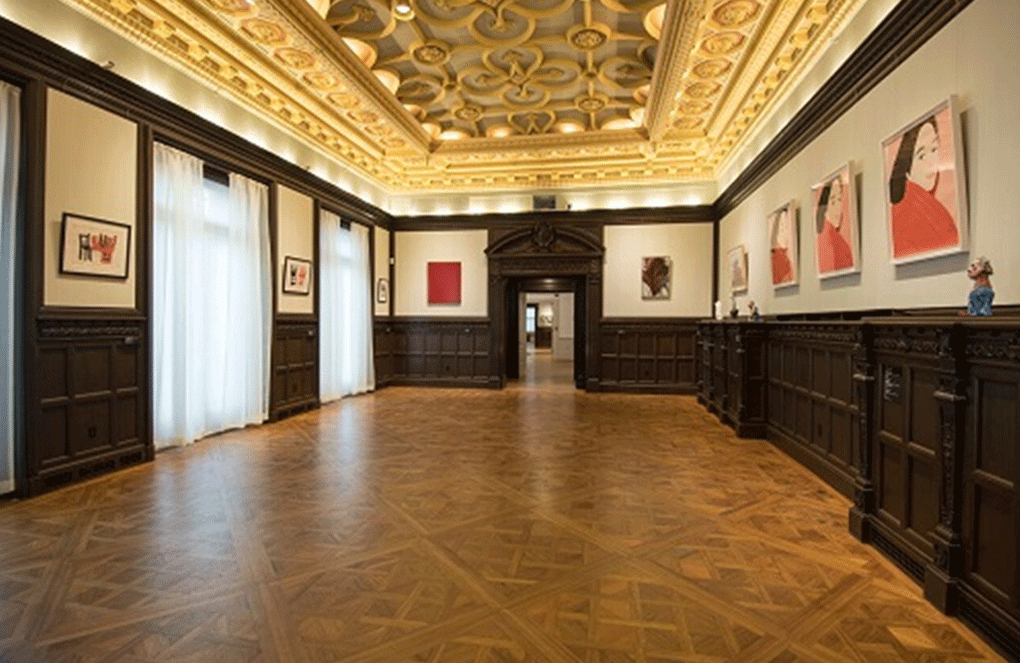
The Phillips Collection
In a city as busy as D.C., quiet space can come at a premium. But there are few spots more peaceful than the Rothko Room of the Phillips Collection, a modern and contemporary art museum near Dupont Circle. Originally a private collection, The Phillips still feels intimate, with works by Renoir and Van Gogh perched on the walls of what was the family’s home. The collection plays host to lectures and artist talks, but they have the cozy feeling of a fireside chat instead of a classroom session. The Phillips Collection, 1600 21st St NW, Washington, D.C., USA 20009 (Photo: Courtesy The Phillips Collection)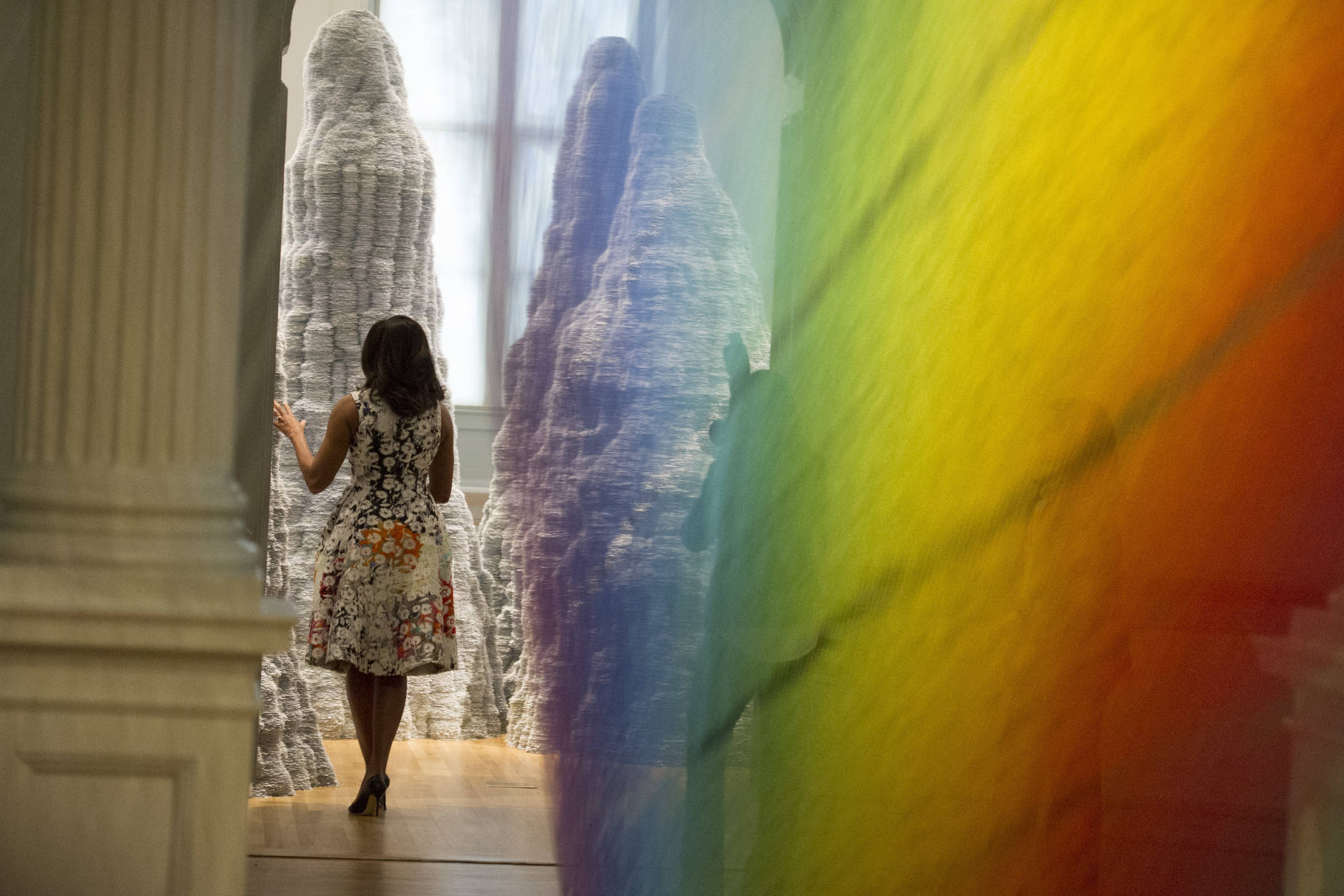
Renwick Gallery
On a somewhat less busy corridor downtown, just east of Lafayette Square, is the Renwick Gallery. Although its stated mission is no less than “documenting America’s visual culture,” the Renwick focuses on crafting and handiwork, taking those art forms out of the living room and into the major art-world stage where they belong. On a single day at the museum, you’re as likely to see an installation of video-game art as you are to see a giant wall-size crocheted blanket. No matter what, you’re bound to view some intriguing art. Renwick Gallery, 1661 Pennsylvania Ave NW, Washington, D.C., USA 20006 (Photo: AP/Cliff Owen)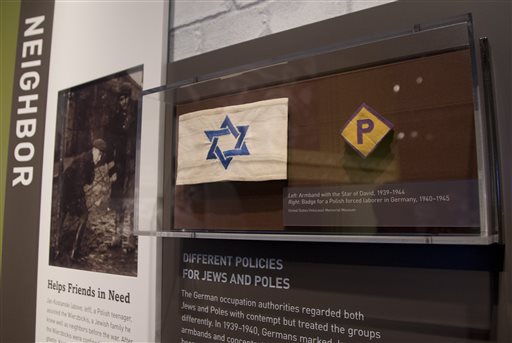
United States Holocaust Memorial Museum
In a city obsessed with history, the United States Holocaust Memorial Museum takes on the task of examining one of history’s darkest periods. Upon arrival, visitors to the Museum are given “passports” that help them to follow the real-life story of a person who lived during the period. On each of the floors, which are organized chronologically, visitors continue following along through the pages of the passport, learning what happened to their person through the years of 1939-1945. This move puts a human face on unspeakable tragedy, and gives names to the nameless while educating a new generation about the past. While the museum’s subject matter isn’t the most uplifting, the lessons it teaches and ideas it spurs are arguably the most important in the Smithsonian portfolio. For this reason alone, it’s worth visiting. United States Holocaust Memorial Museum, 100 Raoul Wallenberg Pl SW, Washington, D.C. 20024 (Photo: AP)